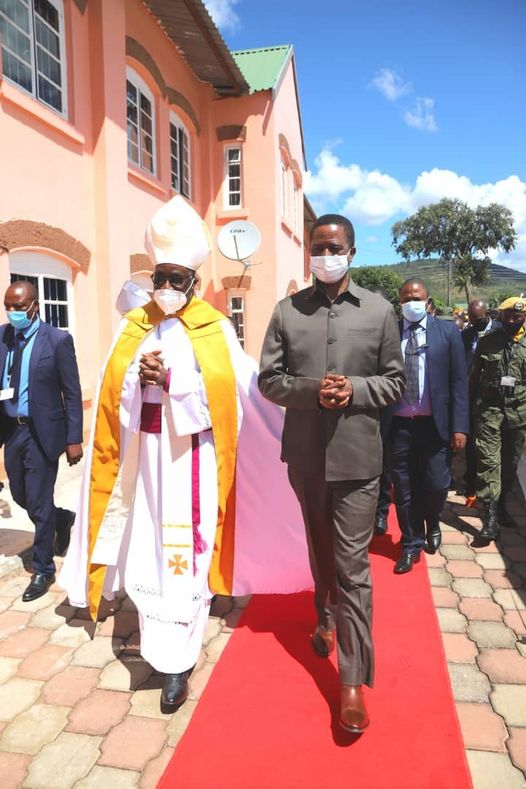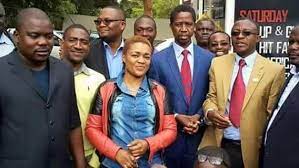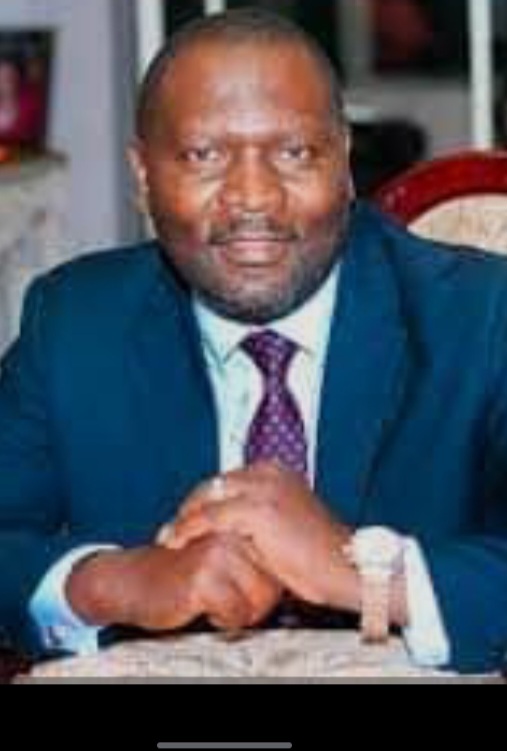Weekly Dialogue: *A Divided House: Edgar Lungu’s Failure to Unite the Opposition and Its Implications for Zambia*
Notice: Undefined index: catFilterList in /home/zambi/public_html/wp-content/plugins/wp-likes/api.php on line 243

President Lungu with Anglican Diocese of Eastern Zambia Bishop William Mchombo during the Silver jubilee celebration for the Anglican Diocese of Eastern Zambia and the Commissioning of the Bishop John Osmers House in Chipata on Sunday, April 25,2021-Picture by Eddie Mwanaleza
By Dr. Lawrence Mwelwa
The African adage warns us: “A man who cannot dance well says the floor is uneven.” In the unfolding drama of Zambia’s opposition politics, this wisdom resonates deeply. Former President Edgar Lungu, once a custodian of national affairs, now finds himself unable to even manage the internal squabbles within the opposition. If he cannot bring harmony to the smaller spheres of Tonse, UKA, and PF, what audacity or competence can he claim to have in addressing the vast, intricate issues of a divided nation?
Leadership is not merely a title; it is a test of resolve, wisdom, and the ability to inspire unity in diversity. As Julius Nyerere once said, “Unity will not make us rich, but it can make it difficult for Africa and the African peoples to be disregarded and humiliated.” Lungu’s inability to foster coherence among fragmented opposition camps reflects poorly on his capacity for broader governance. If he stumbles over the straightforward task of aligning political allies, how can he hope to tackle complex national dilemmas like youth unemployment, healthcare crises, or an economy in flux?
The wrangles within the Tonse Alliance, UKA, and the PF are but microcosms of the deeper challenges Zambia faces. A leader’s character is revealed not in grand promises but in the ability to reconcile opposing views, build consensus, and create a vision that inspires collective action. Yet, Lungu’s approach mirrors that of a potter who blames the clay for his poorly crafted vessel. His wavering allegiances, unclear strategies, and self-serving maneuvers are no blueprint for the robust, visionary leadership Zambia requires.
In the intricate dynamics of Tonse, Lungu has failed to navigate even simple negotiations, turning allies into skeptics and potential partners into rivals. Similarly, his forays into UKA and PF have left a trail of confusion and mistrust. If he cannot steer the ship of opposition politics in calm waters, how can he be trusted to chart a course through the stormy seas of national governance? The truth is laid bare: “A shepherd who cannot guide his goats will never manage a herd of cattle.”
The Zambian people are not blind to these failures. They see a leader caught in his own web of indecision and self-interest, unable to rise above petty power plays to deliver a vision of unity and progress. A leader who cannot settle the disputes of his own house cannot be expected to build a nation. As the proverb goes, “The ruin of a nation begins in the homes of its leaders.”

Kaizar Zulu with Edgar Chagwa Lungu
In 2026, Zambians will not only judge promises but also examine the track record of those who seek their trust. They will ask: If Lungu could not unite the opposition to field joint candidates in Petauke and Pambashe, what hope is there that he could unite the nation? If he failed to resolve minor political disagreements, what evidence exists that he can solve Zambia’s grander, more pressing challenges?
The message is clear: leadership demands more than rhetoric. It demands action, humility, and a genuine commitment to the collective good. Without these qualities, Lungu’s ambitions will crumble like a house built on sand, leaving the people of Zambia to pay the price for his failure to lead with wisdom and integrity. As another proverb reminds us, “A canoe does not know who the leader is; when it turns over, everyone gets wet.” Lungu’s inability to steer even his small political canoe should be a warning sign for the nation.

Dr. Lawrence Mwelwa






















